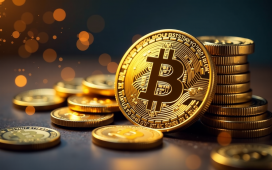Chinese President Xi Jinping and Russian President Vladimir Putin have pushed for the increased use of national currencies in mutual settlements as more countries shift away from the U.S. dollar. “I consider it essential to increase the share of settlements in national currencies” within the Shanghai Cooperation Organisation, said Xi at Tuesday’s SCO summit. Meanwhile, Putin shared that more than 80 percent of commercial transactions between Russia and China are carried out in Russian rubles and Chinese yuan.
Putin: Use of National Currencies in Settlements Is Expanding
Chinese President Xi Jinping and Russian President Vladimir Putin took part in a virtual summit of the Shanghai Cooperation Organisation’s (SCO) Heads of State Council on Tuesday. Indian Prime Minister Narendra Modi chaired the meeting. It was also attended by Kazakhstan’s President Kassym-Jomart Tokayev, Kyrgyzstan’s President Sadyr Japarov, Pakistan’s Prime Minister Shehbaz Sharif, Tajikistan’s President Emomali Rahmon, Uzbekistan’s President Shavkat Mirziyoyev, and Iran’s President Ebrahim Raisi.
“We intend to further deepen ties with the members of the Shanghai Organization, and these ties are becoming stronger and more multifaceted,” Putin said at the summit (translated by Google). “Russia’s trade with the association’s member states last year increased by more than a third, 37 percent, reaching a record $263 billion. And in January-April of this year, it added another 35 percent,” the Russian leader continued, adding:
The use of national currencies in mutual settlements is expanding. For example, more than 80 percent of commercial transactions between Russia and the People’s Republic of China are carried out in rubles and yuan. The share of the Russian currency in export transactions with all SCO countries in 2022 exceeded 40 percent.
“Russia takes an active part in the implementation of the SCO road map on the transition to national currencies in mutual trade, approved at the previous summit in Samarkand in Uzbekistan. It is important to continue this work, to take coordinated measures to remove regulatory barriers, establish the necessary payment infrastructure, and create an independent financial system,” Putin emphasized.
He also congratulated Iranian President Raisi on Iran becoming a full member of the SCO and expressed Russia’s support for Belarus to join the SCO as rapidly as possible.
Xi Considers It Essential to Increase Share of Settlements in National Currencies
Chinese President Xi Jinping stated at the opening of the SCO summit (translated by Tass):
I consider it essential to increase the share of settlements in national currencies within the organization … We need to strengthen cooperation on sovereign digital currencies and work on establishing the SCO Development Bank.
Countries worldwide are increasingly advocating for the use of their national currencies in trade settlements, shifting away from the U.S. dollar. The adoption of the Chinese yuan for trade settlements has gained momentum among some nations. Last week, the central bank of Argentina officially included the yuan as a recognized currency for making deposits in bank accounts.
The BRICS group (Brazil, Russia, India, China, and South Africa) is leading a global de-dollarization trend. The economic bloc also has a proposal for a common currency that many expect to erode the dominance of the U.S. dollar if successfully adopted. Recently, ASEAN members also agreed to increase the use of national currencies in trade settlements.
What do you think about the statements by Chinese President Xi Jinping and Russian leader Vladimir Putin? Let us know in the comments section below.












